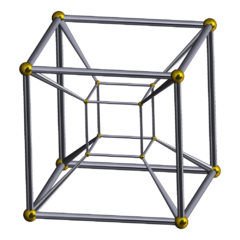I was so worried about being
empty-headed that I filled and filled my head with interest and information and
activity until I overflowed. What a
waste, I thought. Unlike music filling
and spilling, this was less touching than intrusive. And, actually, I had to sit and let it all
settle—use some up and let the rest settle—before I noticed that a little
emptiness allowed for my soul to expand.
Soul is the opposite of ego, I think.
Brain activity expanded my ego, but this expansion took some of the “I”
out.
Perhaps I am still capable of
asserting my skills, but that isn’t the pull of the soul in the moment. The pull is to get up, move outdoors and
walk. We are mid-winter here in the
Northeastern United States, so the sun lingers longer each day—at least
daylight is longer even in the rain.
Winter hasn’t really shown up.
One 32 degree day and one tornado do not a winter make, but make my
thoughts turn toward climate change. If
I’m ever to walk out of doors, I had better do it before it's impossible.
Winter here has meant road work
every few blocks and the noise that accompanies it. I don’t feel up to wrestling with that. Standing in my yard to sense which way my
path might lead, I notice buds greening themselves on Azalea bushes and Dogwood
trees. The Crocus heads peeping out of
the earth two months early are dwarfed.
They didn’t have enough cold to hibernate, rest, and grow
underground.
They remind me of the fact that fewer
species of plants and animals survived last season’s storms and fires. I recently heard that it had reached 60
degrees in the Arctic. I wouldn’t surprise
me to hear that we had become un-moored from our place in the solar system, and
were about to drift away with unknown results.
I try to imagine President Trump guiding the ship of state through that
emergency, with no belief in science and with a full crew who is not privy to
his navigational charts. Non-cooperation
lost us our leadership as nations unite around the earth. We may be more powerful than any three of
nations put together, but that doesn’t mean we can navigate the universe. The whole earth would have to choose a path;
we cannot detach our land mass from it.
There goes my head again. To drop out of the rushing panic such
thoughts bring, I get on my knees near a bed of soil that could be a
garden. I wrap my mind around my own
land mass—this quarter acre which represents my citizenship, a stability I hold
onto despite ensuing storms and hordes of displaced people on the move around
the earth.
I think I feel the earth warm and
soften under me, and imagine I hear a sigh.
Walking anywhere else leaves my mind.
I could use loving care and so could my earth. No, this is not MY earth. I don’t own this spot so much as it owns
me—never mind the jokes about mortgages and related costs, paperwork, and
permits. Never mind the taxes I have to
pay to village, town, county, state and country. Suddenly, I want to have a better
relationship with this earth, one in which I accept who she is and learn how I
can take part in her healing.
I’m late. I know several people who have been doing
this all their lives. Maybe now I get
why. My soul has grown enough to
understand that, but it stops expanding the minute I think competitively. So what if others have been doing this for
decades? I spent the same years following a leading to
teach and to purchase land. Now here,
again, I’m being pulled in a definite direction. Hallelujah!
It’s about time.
I rip up a tiny area of lawn before going back
inside, feeling as if I’d been in prayer.
My knees ache. I’ll have to
contend with physical limits, but I can, I think. To begin with, I’ll reread Braiding Sweetgrass. I’ll research what is and who is indigenous
here. I’ll move slowly. As Theodore Roethke put it, in his poem “The
Waking”:
The Waking
. . . .
Great Nature has another thing to
do
To you and me; so take the lively
air,
And, lovely, learn by going where
to go.
This shaking keeps me steady. I
should know.
What falls away is always. And is
near.
I wake to sleep, and take my waking
slow.
I learn by going where I have to
go.
# Susan Chast, copyright 2020



